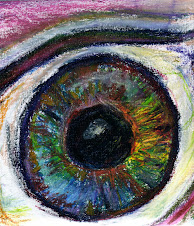Thursday, September 10, 2009
School-induced Headaches- What should you do?
Students with some learning-related visual problems tend to complain that school or reading gives them a headache. This makes them dislike school and reading even when they initially looked forward to it. What could really be going on? The student may have an undiagnosed, unaddressed learning-related visual problem. For instance, if the teacher projects material on a smartboard or writes on a blackboard expecting the class to copy information from the board into their notebooks at their desk, students have to adjust how their eyes are focusing from near to far and back again. This is the visual skill called accommodation. Children with inflexible accommodation skills often cannot handle that kind of classroom activity without getting a headache. It takes a skilled developmental optometrist to identify the problem. Sometimes the appropriate treatment includes glasses. It can also be addressed through in-office vision therapy using various near/far activities and special lenses. Headaches can also be caused by the eyes failing to team well together. A child diagnosed with a convergence excess may be unable to relax their eyes when they get tired from reading because when the look away they may not be able to return to the word without it seeming to blur, wiggle, or double. On the other hand, a convergence insufficiency diagnosis may indicate that the child cannot coordinate the eyes well enough to keep a word in focus when reading. These children may also complain of having headaches at school and when reading. Many of them suppress the vision from one eye without even being aware of it which, unfortunately, can cause additional visual problems to emerge. So, if your child has frequent headaches at school or when reading but is otherwise perfectly healthy, here's what you should do. First, believe that your child is telling the truth. Second, make an appointment with a developmental optometrist to have a comprehensive binocular vision examination. Third, follow your eye doctor's recommendations regarding glasses and vision therapy. Fourth, make sure that your child understands that the condition is not permanent and they should optimistically participate in the work it will take to overcome the problem. Don't ignore the complaints until you find a caring professional who doesn't quit until the correct diagnosis and treatment plan are made.
Subscribe to:
Post Comments (Atom)





No comments:
Post a Comment